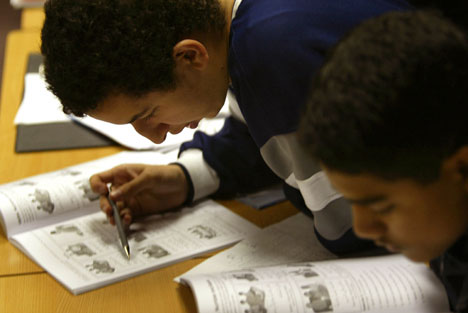 The Economist is second to none in its humorous, witty and ironic writing. This last paragraph, in a story on Muslim students on Western campuses, is classic:
The Economist is second to none in its humorous, witty and ironic writing. This last paragraph, in a story on Muslim students on Western campuses, is classic:
Across the Western world, many Muslim students feel defensive. A request for information from Al-Furqan, an association of Muslim students at the University of Amsterdam, whose aims include the improvement of Islam’s image, elicited the following reply: “Thank you for your interest in our student association. However we would like to inform you that we have no interest in answering your inquiry.”
It is hilarious that somebody, particularly a group dedicated to improving Islam’s image, would refuse an opportunity to present itself to a prestigious publication with a well-informed, wealthy and influential readership. What’s up with that? Answer the good people’s question!
I do not know what al-Furqan’s beef is. Most likely, this was a misunderstanding. They probably thought The Economist is a right-wing, anti-Islam weekly (far from reality, it is proto-Muslim and proto-Palestinian) and did not want to respond to their inquires and have nothing do to with them. Which would have been justified. But that was regrettable. The Economist is a great and fair publication, read the entire article, and an opportunity to speak to them should never be missed.
But part of the problem with al-Furqan, which apparently does not have a website, is not suspicion of The Economist per se, but a force of habit of being secretive that arose in the Arab world. As the best publication in the world noted:
In their countries of origin, Islamist political movements have long experience of recruiting on campus and of forming small groups which owe something to far-leftist prototypes. In Sudan, for example, veterans of the Brotherhood, which took power in the 1989, retain vivid memories of student activism, with a cell structure that Leon Trotsky would have recognised. Such secrecy is not usually necessary in Western countries, but the memory of working in semi-covert conditions must have an effect on the culture of Islamist movements wherever they function.
Muslim groups need to let go of that past and embrace the world – as most already do, of course. At my campus, the Muslim Student Association holds numerous informative lectures. This is how we combat ignorance and bigotry, the latter is usually a consequence of the former, and show people the beauty of Islam.



